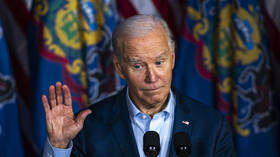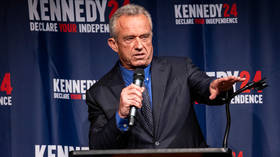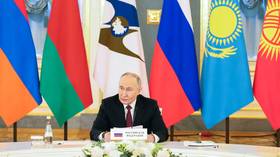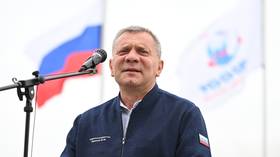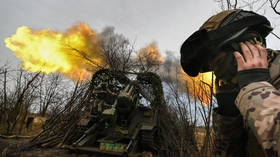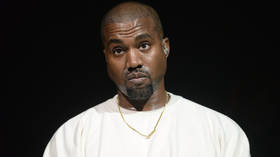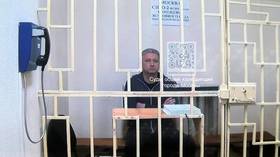Details emerge of failed Russia-Ukraine peace treaty – Welt
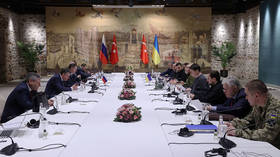
Russia and Ukraine were close to reaching a peace deal in the spring of 2022, under which Kiev was ready to commit to neutrality, Welt reported on Friday, citing a draft treaty. Moscow’s insistence that Ukraine make Russian its second official language was reportedly among the stumbling blocks.
Citing a 17-page document dated April 15, 2022, the German newspaper claimed that an agreement had largely been hammered out by Moscow and Kiev, and that any remaining differences would have been discussed at a summit between Russian President Vladimir Putin and his Ukrainian counterpart, Vladimir Zelensky.
According to Welt, Ukraine would have committed to “permanent neutrality,” would have agreed not to allow foreign weapons and troops into the country, and would have pledged not to “receive, produce or acquire” nuclear weapons. Kiev would also reportedly have guaranteed not to hold military drills with other countries.
In return, Russia would have pledged not to attack Ukraine again, while agreeing that Kiev could receive security guarantees from the US, UK, France, and China. If Ukraine came under attack, its guarantors would support its right to self-defense within three days, with the relevant agreements being ratified by each participating state, making them legally binding.
Welt also claimed that the treaty had excluded Russia’s Crimean Peninsula, as well as parts of Donbass, from any security guarantees granted to Ukraine.
However, it is unclear which parts of Donbass were covered by the clause. The outlet noted that while Russia had wanted the exact borders to be determined at a Putin-Zelensky summit, Kiev had refused, insisting that they be based on the Ukrainian interpretation.
At the same time, Moscow had reportedly signaled it was ready to withdraw its troops from Ukrainian territory, but not from Crimea and Donbass. The details were said to have been slated for discussion by Putin and Zelensky.
The two sides also reportedly had major disagreements over the size of the Ukrainian military, as Kiev wanted to maintain far more troops than Moscow was prepared to allow.
Welt reported that while the belligerents were close to an agreement, Moscow subsequently demanded that Russian be made the second official language in Ukraine. It also purportedly wanted all mutual sanctions to be lifted and lawsuits dropped in international courts, while insisting that Kiev ban Nazism and “aggressive nationalism.” Those demands were rejected by Ukraine, the paper claims.
Commenting on the potential agreement, one Ukrainian negotiator told Welt: “That was the best deal we could have had,” arguing that Kiev was in a stronger negotiating position in 2022 than it is now.
Russian officials earlier confirmed that Ukraine and Russia had been close to a peace deal, but claimed that progress had been derailed by then-UK Prime Minister Boris Johnson, who allegedly advised Kiev to keep fighting. Johnson has denied the accusation.



